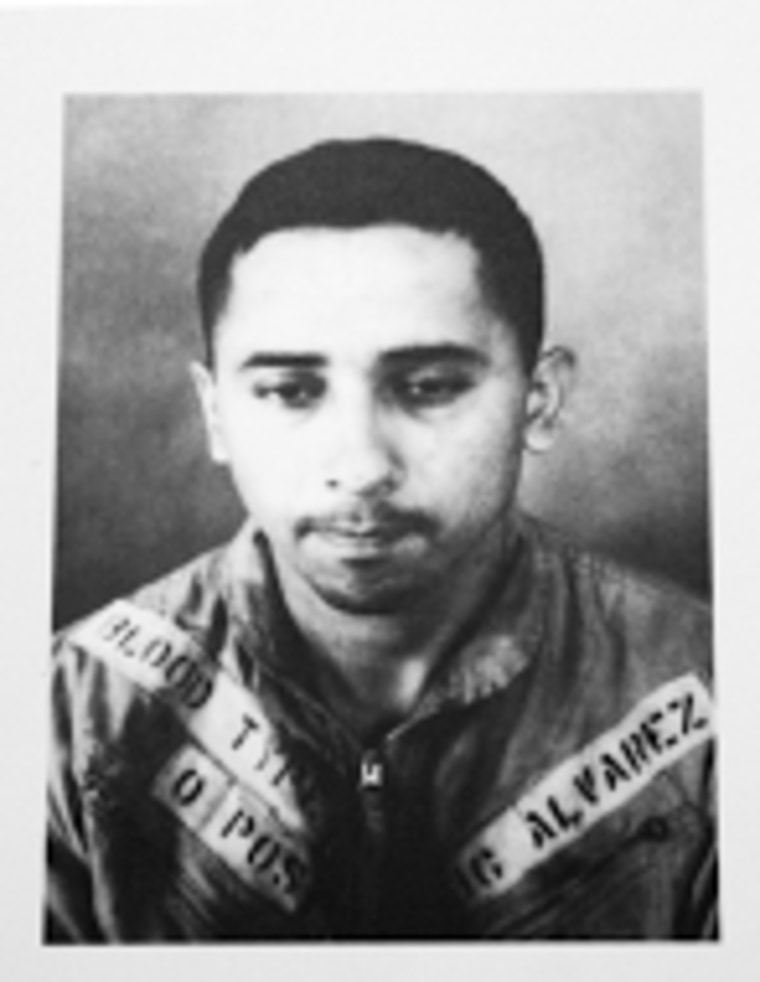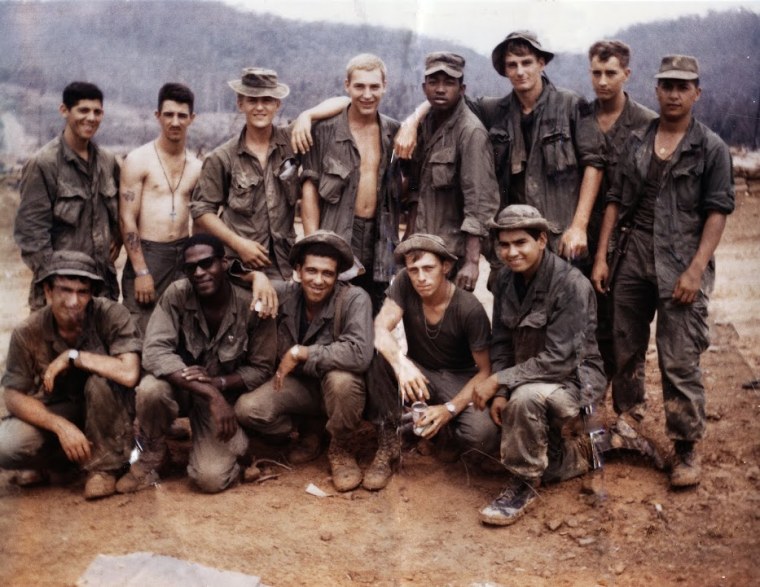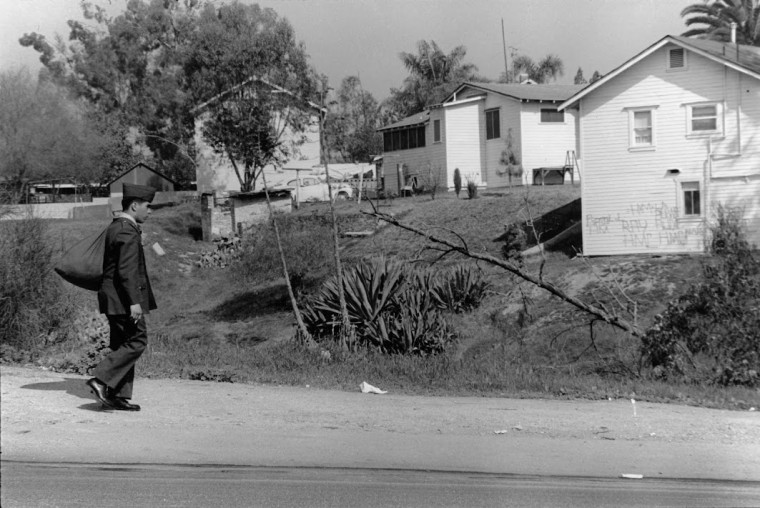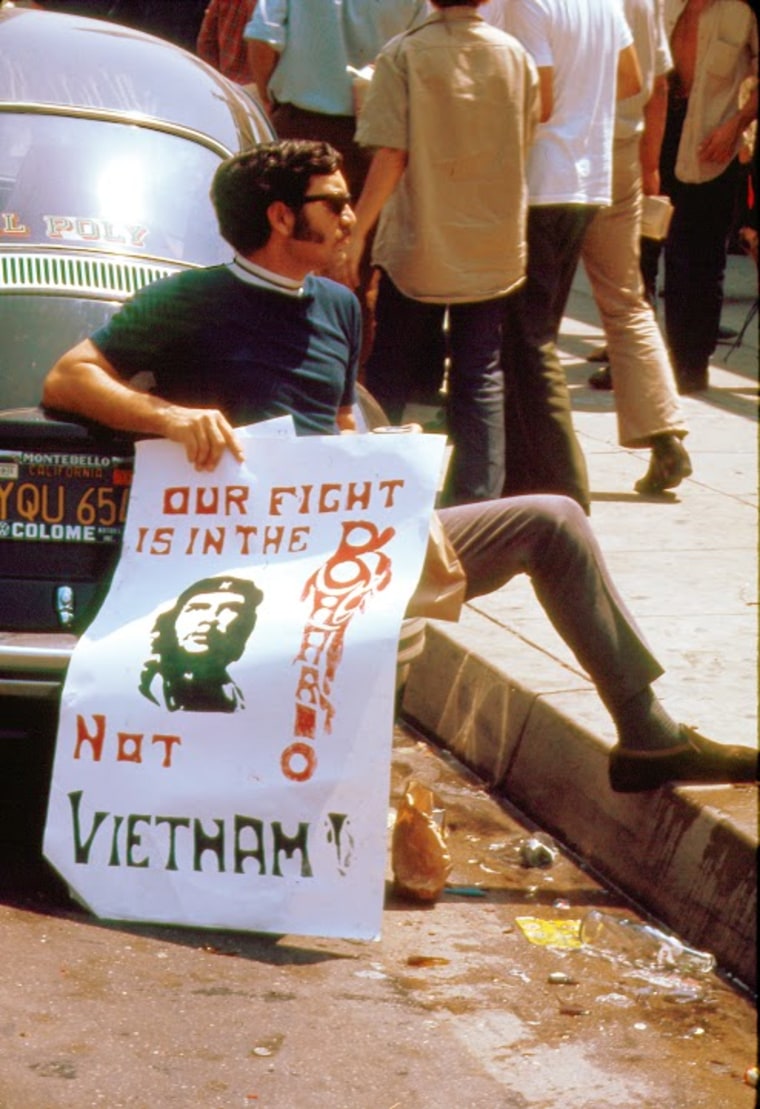When her brother Everett was taken prisoner of war in Vietnam, Delia Alvarez wished that she was a man. That way, she said, she could go fight the enemy.
“Who knew it was going to continue for years and years and years,” Delia Alvarez says wistfully in the poignant PBS documentary, “On Two Fronts: Latinos and Vietnam,” airing nationwide Sept. 22 as part of the network’s Hispanic Heritage Month programming.
The Latino experience during Vietnam is complicated, to be sure. On the one hand, a hyper sense of patriotic loyalty forged during the Mexican American experience in World War II. On the other, Latinos take notice and speak out when they see Vietnam exacting a heavy price on their families.
Vietnam disproportionately affected Latinos. Though Mexican American males of military age composed about 14 percent of the population in five Southwestern states, they composed 18.2 to 19.4 percent of war casualties in those states, according to research estimates by scholars.

Like many Americans, however, Delia Alvarez would grow to question U.S. involvement in the Vietnam conflict and its devastating toll on working-class youth. Laid bare, Delia and Everett Alvarez’s memories form the underpinnings of “On Two Fronts”.
The Alvarezes were a natural choice to depict shifting stands about the war, director-producer Mylène Moreno told NBC News.

“They provide a really wonderful beginning, middle and end, including an evolution at least for Delia Alvarez and a reaction to the war,” Moreno said. “I always felt that the war itself didn’t just impact veterans, but families, and we can see that through their story.”
Moreno talked with NBC News about her hopes for the film, and why the lessons of Vietnam remain relevant today.
NBC News: What drew you to this project?
Moreno: Every film I make ends up being very personal. Growing up during the Vietnam War definitely left an impression on my young brain, though I was too young to remember the details and even the coming home. But I remember the POW-MIA bracelets and just what a trauma that war was. Also, I had an uncle who had gone and never discussed his experience. It was always a part of our family and yet, not addressed.
Years later I made a film about the Chicano civil rights movement, Chicano identity and activism, and it ended with the largest Chicano anti-war march in 1970 in Los Angeles. That was my first introduction in an academic and professional way into the war. I’ve always been interested in pursuing something in more depth, digging in and understanding the impact of the Vietnam War on Latino communities.

NBC News: What do you hope viewers take away from ‘On Two Fronts’?
Moreno: I hope that younger viewers, whether or not they are Latino, will come to understand this war and the huge impact on the national psyche it had. I think (Vietnam) influenced the way war is conducted today. The selective service system has been completely revised, and there’s no draft currently.
The way young men and women are drawn into war is not all that different. It ends up being an opportunity for young people that maybe don’t always have the same opportunity that the more privileged do. I talk to young veterans post 9-11 who talk about signing up to serve because this was a way up. Taking a risk in war was a way to survive their neighborhoods.

NBC News: As the film demonstrates, Latinos have a very complicated history with Vietnam, patriotic yet evolving over years to the point where they, like many Americans, question U.S. involvement. What are we to make of that?
Moreno: It’s interesting. I know that especially in Southern California, Latino families really in some ways were at the vanguard of public opinion about the war. There was a survey of Mexican American families in Santa Barbara regarding public opinion of the war. They discovered that Spanish language-only families were most opposed to the war. They were coming to understand what a terrible toll the war was taking on their community. There’s a fairly long and patriotic history of service that Latinos have enjoyed for as long as Latinos have been part of this country, which is from its inception basically.
There were Latino heroes in the Civil War. There’s huge participation during World War II. The earliest civil rights activists within the Mexican American communities in the Southwest have been veterans. Cesar Chavez was a veteran. So many came home from the service having understood the value of the Constitution and expecting it to be equally applied.
NBC News: A few years ago, Ken Burns famously chronicled World War II and was criticized for omitting Latinos. Do you worry that the Latino experience in Vietnam is also being forgotten?
Moreno: For me the overriding concern is that the public understands the war primarily and its impact on working-class kids. I’m a Latina and I’m real interested in these stories and I think it’s very important to remember them and the deep loyalty that Latinos have for this country. That’s really my motivation.